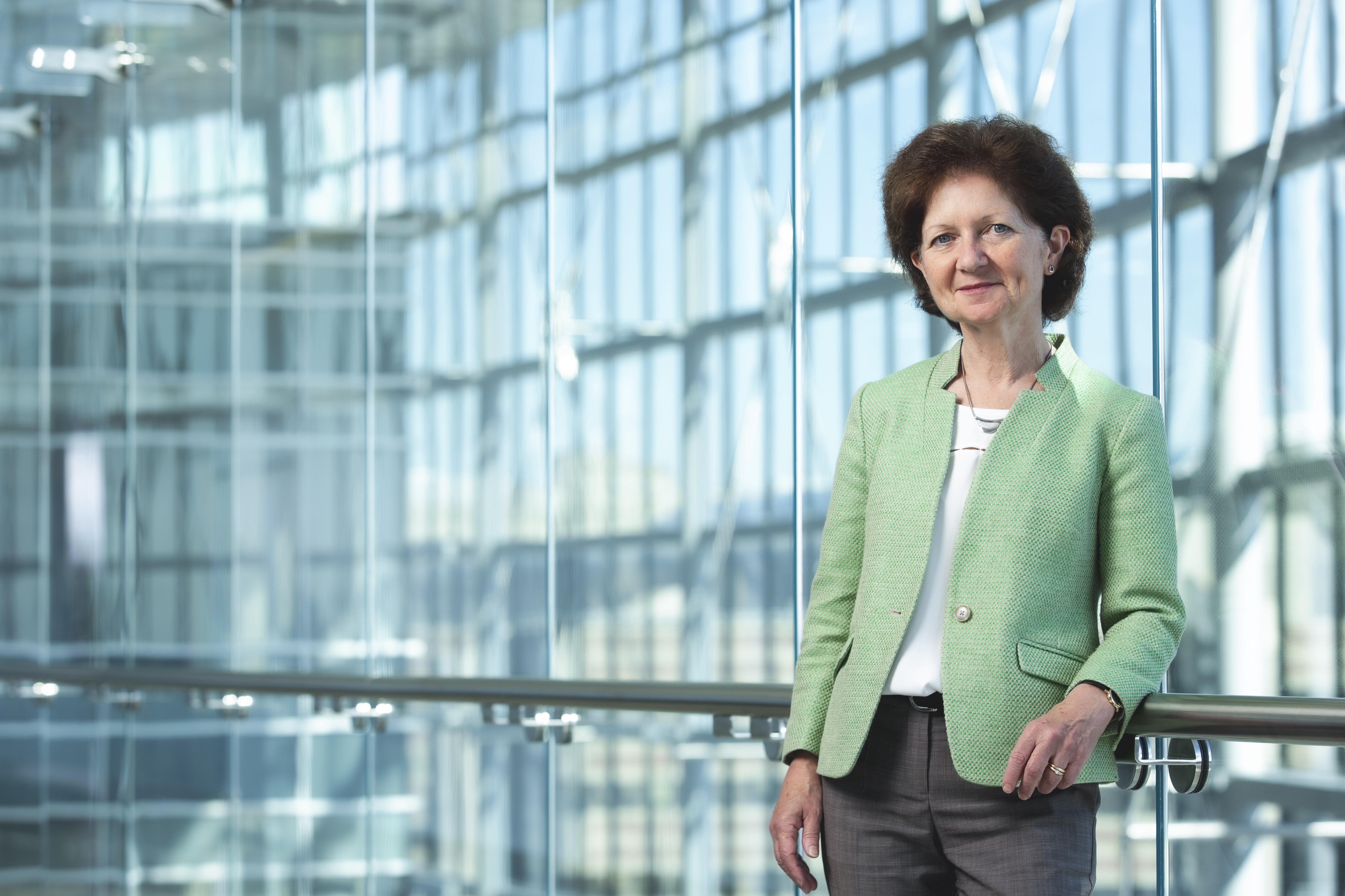
After 35 years in health care, academics and administration, Dr. Brenda Hemmelgarn joined the University of Alberta as the Dean of the Faculty of Medicine & Dentistry on January 1, 2020. Little did she know that she would be leading the faculty through an unprecedented global health pandemic - making for the most interesting challenge of an already varied and interesting career. We met with Dean Hemmelgarn to find out about her work in the faculty so far, and her plans for its future.
What attracted you to the opportunity to lead the Faculty of Medicine & Dentistry at the U of A?
I was attracted by the opportunity to lead a world-class faculty with an international reputation for excellence in research and education at all levels. The faculty's response to COVID-19 speaks to this excellence, showing everyone's collaborative nature whether they are rapidly adapting to remote teaching and learning, or undertaking groundbreaking research. Many of our researchers are leading the way in COVID-19 research, with everything from diagnostic testing to work on potential vaccines.
It was also a great opportunity to continue to work in Alberta and maintain and build the collaboration between the University of Calgary and U of A, along with Alberta Health Services as our health-care delivery partner. I was drawn to the opportunities to strengthen those alliances in the province and to contribute to health care and health-care delivery for all Albertans.
I am also at a stage in my career where I want to focus on leadership at a higher level and foster the success of others.
What is one interesting fact from your research that most people don't know?
As a clinician scientist the most important thing is identifying the study question. Researchers typically develop the research questions, but over the past years we've come to appreciate that patients are best placed to guide our research agendas, as patients are the ones who live with the (chronic and kidney) disease(s). So we have shifted the focus of our research to determine the research priorities for patients, and study those accordingly. I engage and involve patients in all aspects of my research. This patient-oriented approach has changed the way I do research and the value of the research for me.
What have been some highlights from your first eight months at the U of A?
COVID-19 for sure! I am very impressed with the leadership at the university. At the outset of COVID-19 we were having dean's calls regularly and working closely to make decisions, at the institutional and faculty levels. I have also been so impressed by how students have adapted to the changes. I have always loved working with students and I am amazed by the student leadership here. I'm also impressed with the faculty and staff. Everyone is so dedicated to the faculty and institution more broadly. They're very proud and committed.
I have also enjoyed working with our foundation partners, other institutions, alumni and our donors. Their commitment to the faculty is essential.
The University of Alberta is a great community and a great place to be.
What are some of your plans for the rest of your first year as Dean?
In alignment with the university's Service Excellence Transformation plan, we're evaluating our administrative services and looking for ways to increase efficiencies. We're developing an anti-racism strategy and expanding our equity, diversity and inclusion plan. And our other big project is developing a strategic plan called Vision 2025, a five-year roadmap for the future. With all the changes happening at the U of A, we need to know where we want to go and how we'll get there - our vision for the future. Key partnerships and collaborations - both internally and throughout our community - have been and will continue to be fundamental in the planning and implementation of this vision.
What challenges and opportunities have there been for you and the faculty in response to the COVID-19 pandemic?
The challenges have been many for everyone, with many decisions that had to be made very quickly. First and foremost we had to ensure the safety of our faculty, our staff and our students: knowing when to pull students out of clinical rotations, figuring out how to modify educational materials. Another challenge was modifying our research activities. A number of researchers received funding to carry out COVID-19-related research, so we needed to figure out how they could undertake this research safely.
Our junior investigators are at a stage of their career when they are working to get grants and this has put a whole new twist on how they interact with students and do their jobs. And there are those, particularly women, who have a new set of challenges if they are now working from home with a young family to care for or older parents.
There have also been many opportunities. Our researchers have been highly successful in receiving funding for COVID-19 research. Because we have adapted to teaching online, this is going to give us a huge opportunity in the future to be able to deliver programs in a new way - we probably wouldn't have done it otherwise. There is also a new opportunity to explore virtual clinic visits and to teach our trainees about virtual care.
What are some (socially distant) things you enjoy doing in your spare time?
I love walking and hiking, so I have explored a lot of the river valley. It's just beautiful. You're in the middle of the city but it doesn't feel like it.
We hear you're a bookworm - what are you reading right now?
I'm reading a work-related book called Managing Transitions: Making the Most of ChangeManaging Transitions: Making the Most of Change. People are the most important asset in our faculty and I want to be sure I'm equipped with the tools to manage and help them through the transitions and changes ahead.